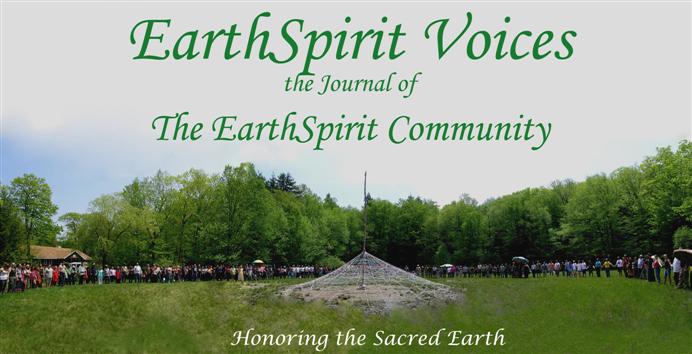One of the most important events of the Parliament of the World's Religions – the Indigenous Assembly – was, quite likely, the least visible: attendance was by invitation only, and it was held in a former convent several miles away from the
In keeping with one of the Parliament's seven main themes (and as mentioned in these pages prior to the event), the idea of convening an Indigenous Assembly in Melbourne was, from the beginning, a major focus of the Indigenous Task Force's plans – we wanted to create a space wherein the international representatives of Indigenous traditions traveling to Melbourne would get a chance to meet with their counterparts from Australia and the South Pacific to discuss issues of mutual relevance, and perhaps even come up with a joint statement to be delivered during one of the Parliament's plenary sessions. Our initial plans called for a three-day assembly which, for the first two days, would be limited exclusively to the Indigenous delegates, then opened on the third day to include representatives from other cultures and religions. Unfortunately, budgetary and time constraints forced us to scale back our plans and keep the assembly to one day.
Early in the morning
The proceedings started with a brief introduction by Task Force chair Omie Baldwin, followed by a traditional welcome to country by Auntie Joy Murphy Wandin, senior elder of the Wurundjeri people who are the traditional "owners" of the land that includes 
Then we went around the room introducing ourselves to each other, and several people, including  vil rights, of sovereignty. I was particularly impressed by Steve Newcomb (Shawnee/Lenape), who spoke about his attempts to mount legal challenges to
vil rights, of sovereignty. I was particularly impressed by Steve Newcomb (Shawnee/Lenape), who spoke about his attempts to mount legal challenges to
We then had a relaxed lunch break, which allowed us ample time to lounge in the convent's courtyard and get to know each other a little more intimately. Besides spending some time with Jo nas Trinkunas and Arturas Sinkevicius, my two Lithuanian friends, I had conversations with Robert Houndohome Hounon – the Voudon leader from Benin, whose trip to the Parliament had been partly financed by Angie Buchanan's pagan community – and with Chris Peters (Yurok), president of the Seventh Generation Fund for Indian Development, who had been our keynote speaker that morning. I also had the opportunity to talk with Uncle Bob Randall and his delightful American wife B
nas Trinkunas and Arturas Sinkevicius, my two Lithuanian friends, I had conversations with Robert Houndohome Hounon – the Voudon leader from Benin, whose trip to the Parliament had been partly financed by Angie Buchanan's pagan community – and with Chris Peters (Yurok), president of the Seventh Generation Fund for Indian Development, who had been our keynote speaker that morning. I also had the opportunity to talk with Uncle Bob Randall and his delightful American wife B

We eventually returned to the hall for small group discussions on nine key topics which the Task Force had identified: Spirituality, Health, Repatriation, Environment, Water, Mining, Language, Land and Global Warming. I went to the table focused on Spirituality, and joined a group which included the two Lithuanian delegates as well as Yoland Trevino (Maya), Global Council Chair of the United Religious Initiative, and Merekaraka Caesar, (Maori), president of the Universal Peace Federation, who proved to be extremely nice and interesting p eople.
eople.
After some lively conversation, we coalesced into one big group again, to go over what we had discussed and to organize a committee that would synthesize our thoughts into a statement to be shared with those assembled at the closing plenary, and also be sent on to the international representatives who would meet in Copenhagen, right after the Parliament, for the U.N. Climate Change Conference. I will include a copy of the statement following this two-part piece.
We ended the day with a traditional Australian barbecue (yes they had "shrimps on the barbie," in addition to several other equally tasty items) and a very friendly group photo.
.jpg)




This is really great!
ReplyDelete-Jose
Thank you Andres for an excellent and accurate report. You walk a fine line between participation and Parliament involvement and do an excellent job.
ReplyDeleteOne of the problems that you do not mention was the lack of participation in the Indigenous Assembly, of many of the Asian indigenous peoples who attended the Parliament. Neither the Japanese nor the Philippine representatives of several indigenous traditions were invited and, in fact, vociferously objected to their exclusion during the workshop held the next day to talk about the "results" of the Indigenous Assembly.
In fact, except for the Sami and Romuva folks, there was little or no European or Asian representation at all compared to the Parliament's population in general.
R Watcher, Covenant of the Goddess Interfaith
Representative (National)
United Religions Initiative
North American Interfaith Network